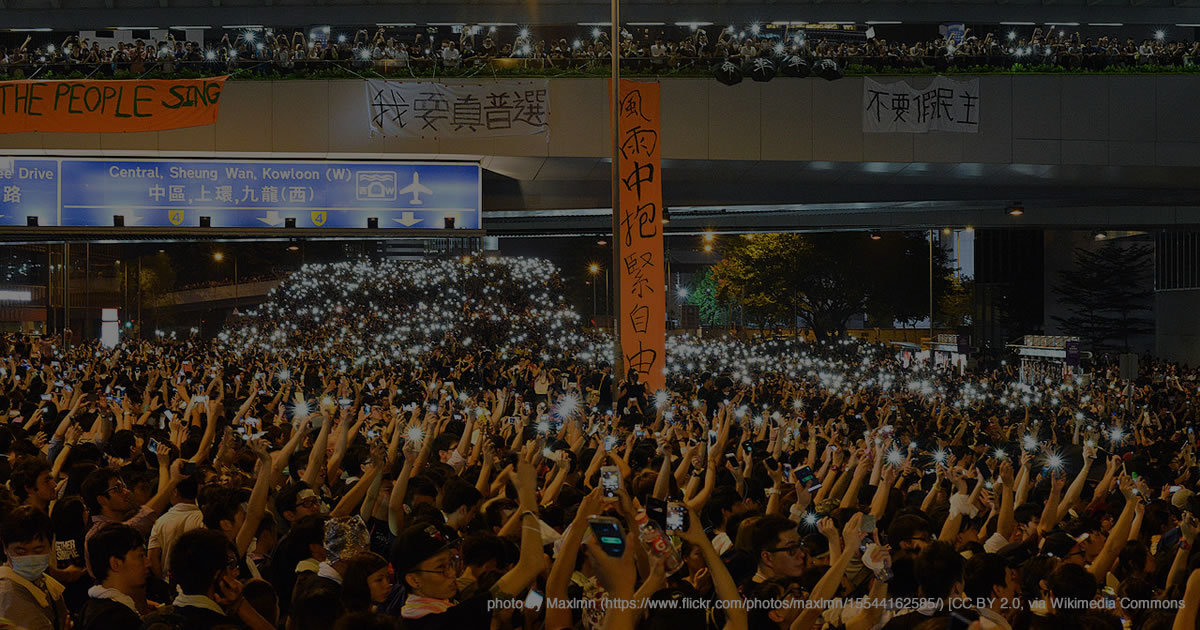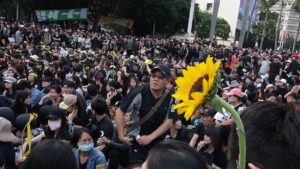Mobile technology is proving to be a transformative force. Around the globe, campaigners, NGOs and individual activists are using mobile to connect new people to campaigns and empower them with immediate access to communications, data, and networks of other change makers.
Despite this potential, the social change world is littered with failed apps and technology tools.
The problem? Leading activists and developers we spoke to highlight obstacles ranging from top down management structures to a lack of user engagement in development processes. Internal technology innovation experiments often result in products that miss the mark after big budget and staff investments.
There is another way. Several developers and nonprofits are creating useful tools to advance specific campaign and advocacy goals. Teams are organising in a bottom-up fashion with internal cultures designed to foster openness and innovation. Those we talked to aren’t focused on creating apps but instead work directly with community members to discover (and create) tools that empower them to organize and solve problems.
Unique models and targeted innovation
Moving into social apps was a natural step for the National Domestic Workers Alliance (NDWA). The organization saw mobile technologies, social networks and the rise of the gig economy changing the way domestic workers communicated with each other. Employer relationships were also changing – not always for the better – but they believed these changes created an opportunity to connect and empower workers. NDWA launched Fair Care Labs in 2014.
“The lab is a hub for all of our experimental strategies” said Palak Shah, director of Fair Care Labs. “We felt that there is tremendous opportunity with technology, and we’re willing to spend time experimenting with new strategies.”
NDWA considers Fair Care Labs their “innovation wing.” They work on the same goals as the entire organization – empowering domestic workers and raising their workplace standards. This allows them to connect with the ethos of the whole team while allowing space for genuine, results-driven experimentation.
“Is there engagement that can help us achieve our movement’s goals,” asked Shah, “or are there ways we can produce our own products, and harness the power of the digital era on the behalf of workers?”
One of the early tools coming out of Fair Care Labs addressed a pressing community need. In-House Agreements is a web-based tool that allows domestic workers to more easily create contracts they can use with employers.
“Besides [technology] there is no other way to make Iran join the international community.”
— Reza Ghazinouri, United for Iran
Irancubator took a similar community-centered approach. United for Iran, a California-based human rights organisation, views technology as a gateway to creating change in a country (Iran) where there is little space for traditional civil society campaigning or engagement.
“We have found that the best way to approach the specific nature [of the Iranian regime] is through technology,” said Mohammad Ghaffarian, Program Coordinator at United for Iran. “It’s the most peaceful way, and the most harmless way, as opposed to other more ideological methods.”
“Besides [technology] there is no other way to make Iran join the international community,” added United for Iran Program Director Reza Ghazinouri.
Irancubator uses a community needs assessment to help identify 12 teams developing social good apps focused on Iranian civic concerns. Staff and partners support the teams with a wide range of capacity, pro-bono resources and visibility. They also provide meaningful tech support, including servers or security, while tapping into their organizational network to test impact and engagement.
“Many people are very good at one part of the chain. Some have good ideas; some have technical capabilities; some have good access to the country,” said Ghazinouri. “We can create the added value change for them, and help them nurture their ideas.”
Not all tools have to be campaign focused. Caravan Studios, a division of San Francisco-based TechSoup, creates tech tools that solve specific, actionable problems for communities of nonprofits working on similar challenges.
“We felt like if we could look for problems to be addressed, we might be able to bring technology to bear on those problems,” said Anna Jaeger, Chief Technology Officer at Caravan Studios.
Caravan Studios brings organizations together for what they call “generator sessions.” Participants identify actionable ideas and, using methods borrowed from human-centered design, build prototypes they can test and develop into real, usable technology tools.
Learning from NGO Tech Incubators
Solve small problems. The organisations we spoke with report that it’s easier to build – and for users to navigate – a tool that focuses on a specific challenge. Don’t build one app to address all campaign organising needs, for example. Instead help people contact and communicate with each other at a local event.
Be prepared to take advantage of support. Numerous companies, hacker groups, or open source communities are willing to work with nonprofits on technology projects. Just come in with a clear idea of what help you need and why.
Tech takes time. Engaging with the technology community takes time and resources. Don’t commit if you don’t have the capacity to follow through.
Don’t reinvent the wheel. Existing tools can often be repurposed. Don’t develop an app or platform when something simpler will suffice. Caravan Studios, for example, often creates mobile-responsive web pages rather than smartphone apps. The pages demand fewer resources, less updating and are simpler to get working on a wide variety of phones.
This process can take time. “We very carefully weigh what would make a good minimum viable product and what the community would actually use,” said Jaeger.
For example, they found that animal rescue organisations faced a common challenge in deploying volunteers to pick up animals in an urgent, time-sensitive manner. The team churned through the entire process from notification to pick-up. Resulting ideas turned into 4Bells, a volunteer management platform that enables nonprofits to more effectively connect with and mobilise volunteers.
A culture of innovative thinking
Technology development is a new and different process for advocacy and other nonprofit groups. There is no one model that works everywhere. Experimentation, testing and failure are all necessary steps. But tech development also represents a significant investment of resources and time. Ongoing stakeholder support – staff, leadership, developers, and clients to name a few – is critical.
“It was not a big shift,” said United for Iran’s Ghazinouri. “Being quick and making things happen is our organisation culture. We know that we can’t wait for things to happen themselves.” There were several challenges, however: language, time, and security are all major concerns.
Successful programs clearly tie development and innovation to the organisation’s mission.
“The thing keeping us here together is the cause – we have own problems, but we care so deeply about the cause, that we get through it,” added Ghazinouri.
Similarly, Shah and her team at Fair Care Labs built on the creativity and openness of National Domestic Workers Allience’s culture.
“Our movement, by its very nature, has been very entrepreneurial from the start,” said Shah. ”We’ve had to be very creative to organize workers who have been in the shadows. We are really focused on our goal here, and we are going to keep at it until we find the thing that works.”
The team has learned to accept setbacks as a natural part of the process.
“It is inevitable that things will fail, and there are things that have failed,” said Shah. “We are not looking to fail, but we are willing to accept that failure is part of the process. This takes the pressure off when trying new things.”
Categories:
tech, tools and tactics



